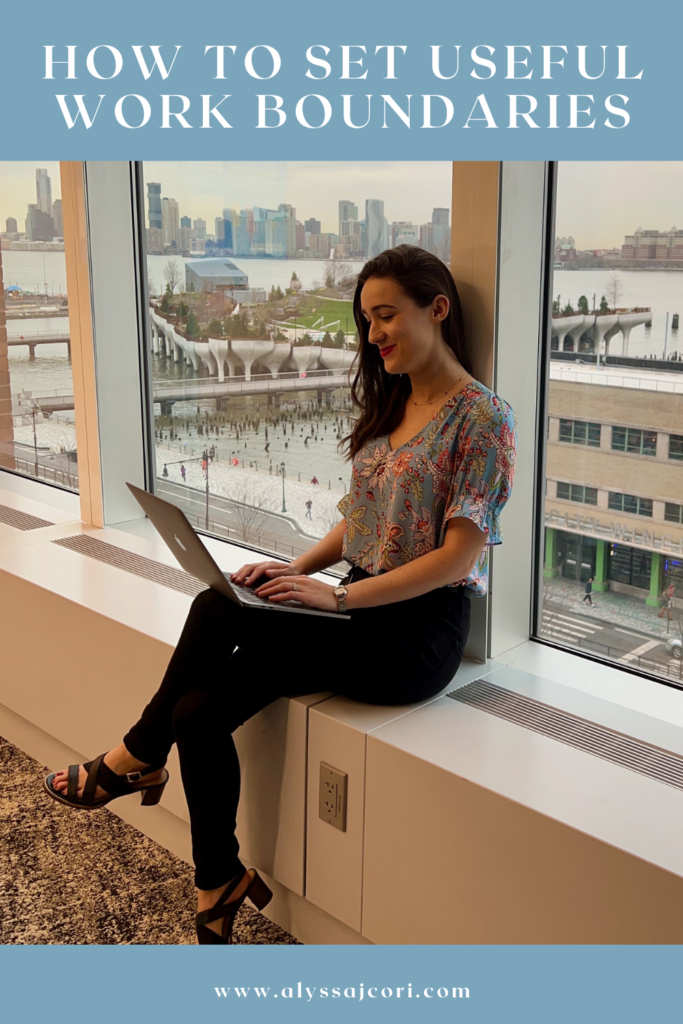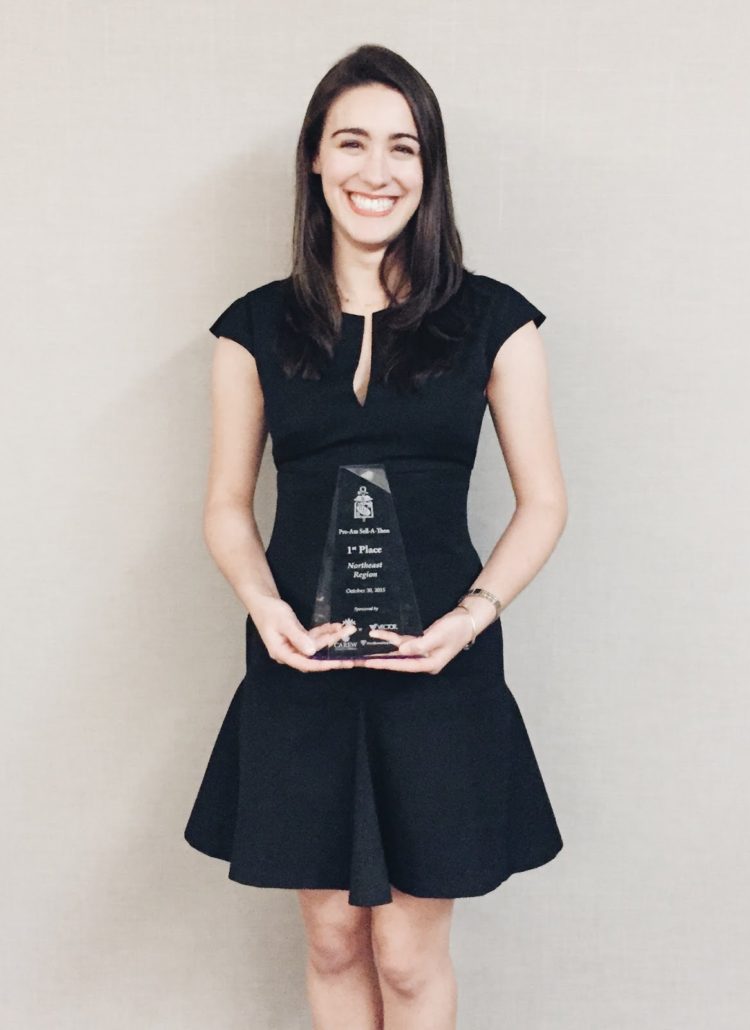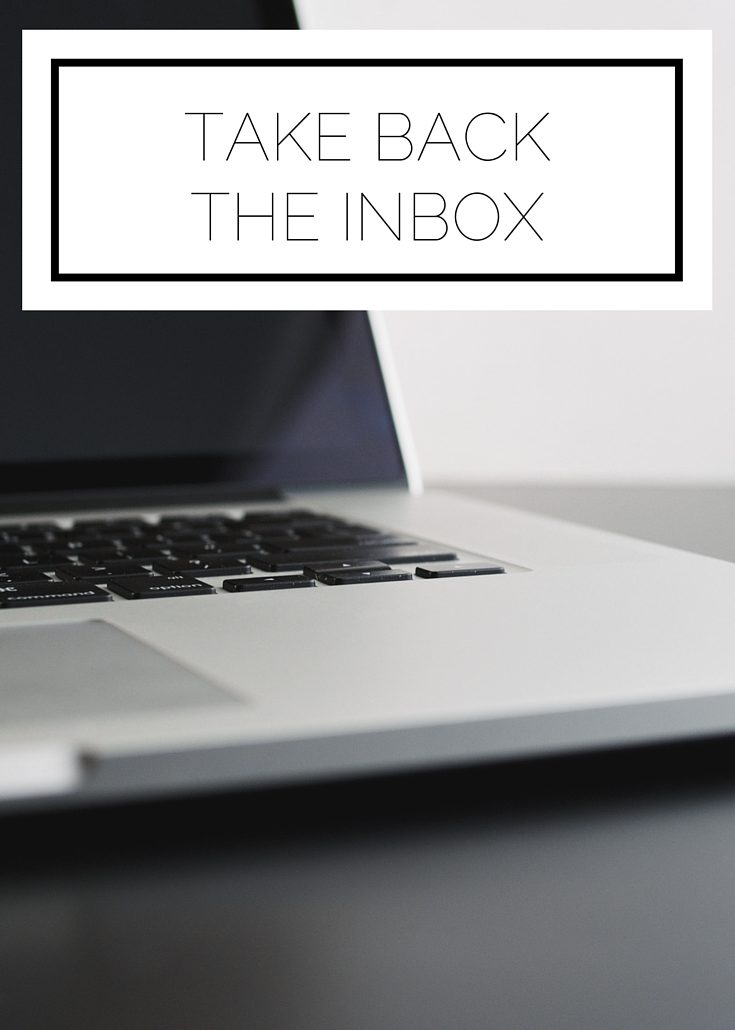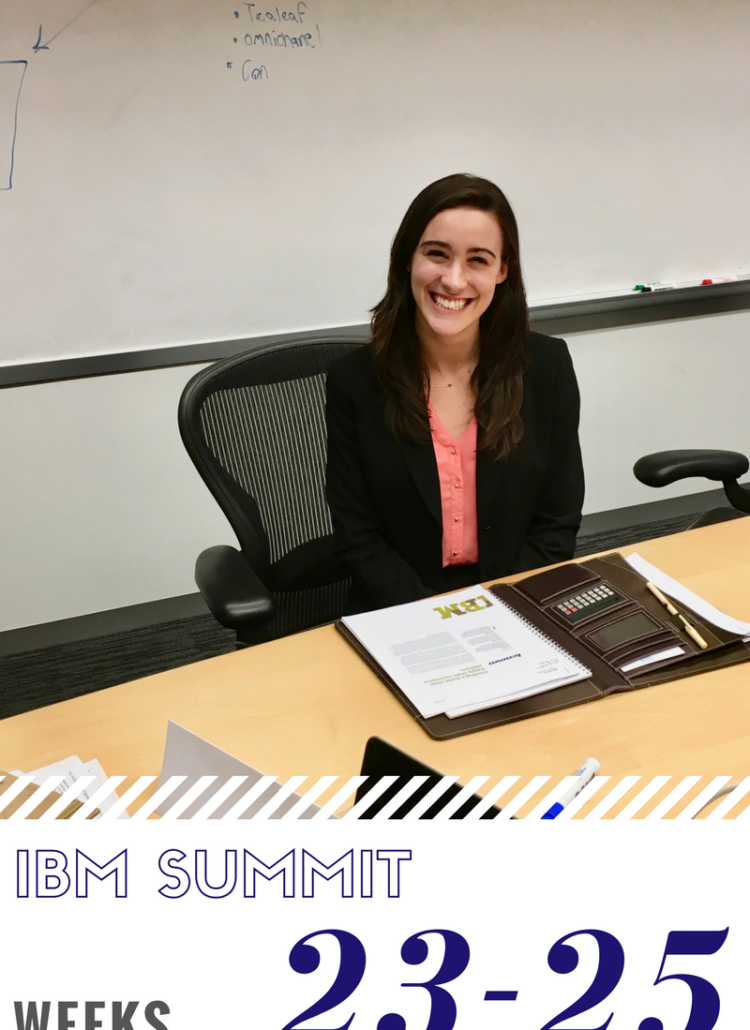I am going to come right out and admit that I am not great at taking my own advice when it comes to this topic. In fact, I would say one of the biggest areas where I can improve is managing my high expectations for myself. I pretty much always feel like I should push harder and work longer because, well, why not? However, I have been making improvements in this area and want to share the simple boundaries that are working for me and that I am trying to implement.

Not checking emails when waking up and before going to sleep
Does this routine sound familiar: alarm goes off, reach for your phone, look at work emails, brain kicks into overdrive as you start thinking about all of the things you have to do today? Yep, that was me for a long time. And the same goes for looking at emails and work messages right before going to sleep. I’ve realized that this does not help get a jump on the day, but instead often starts my day on the wrong foot.
Having a rule for yourself that you will not check emails and messages until, say, after eating breakfast, can make a major difference in being able to start your day in a positive mental space that carries into everything you do next.
Creating a work “Focus”
If you are an iPhone user you may be familiar with the feature of setting a “Focus” on your phone – it essentially allows you to set a time period where you can change how you receive notifications and you can create specific home pages.
I put all of my work apps on one page and that page is the only one visible during working hours. This helps to get the most out of working hours because I am not distracted by other apps (looking at you, Instagram) and when I am off the clock I am not as tempted to log into my work apps.
My notifications stay the same because I only allow calls and texts to come through, regardless of the time of day. But something else that is helpful with managing notifications is that I do not have a separate messaging app for work on my phone. I use Google Chat, so I just access that directly through the Gmail app and it helps me truly compartmentalize work.
Commuting
As I mentioned in my recent monthly recap, I have been loving going back into the office and part of the reason for that is because I get to commute. I had forgotten how valuable a commute is, especially at the end of the day, to decompress from work and turn my brain off to those thoughts before coming home. I’ll read, listen to music or a podcast, or even just silently people watch on the way home and it is so helpful to give my brain a rest.
Even if you don’t have a commute, you can create your own version. This is something I do on work from home days by taking a walk immediately after finishing up work.
Truly believing that you are in charge of your calendar
Do you ever feel a sense of pride when you look at your calendar and see that you are just oh so busy and in demand? Me too. But then to you feel a sense of dread when you realize that there are not nearly enough breaks and by the end of the week you know you’ll be wiped? Also me.
The misconception that busy = productive is deeply engrained into many of us. It is a work in progress for me to truly believe that I am in charge of my own calendar: I can say no to meetings. I can reschedule meetings to a better time. I can make meetings with myself, both to get work done and to take a break.
I am trying to be more intentional and less apologetic with managing my calendar to do what is best for me. Instead of being embarrassed that I am scheduling in a 15 minute break or blocking off time to eat lunch, I’m looking at it as an investment in my overall work quality. There is zero reason to be embarrassed (that in and of itself probably requires more self reflection than I am willing to do 😂) and no one is looking at your calendar and caring about something as simple as that, especially when you get your work done and perform well.
The other area this plays into is being in the office again – I find it so much harder to be focused because I am greeting people, asking questions and being asked questions, and there is less focus time. Managing my calendar intentionally also translates into politely telling people in the office that I can’t chat now and finding hiding spots where I won’t be disturbed instead of sitting at my desk in the communal area.
This is an ever evolving practice for all of us and our boundaries will change with our work and life responsibilities. These tips are what are working for me right now. I’d love to hear how you set boundaries!




Leave a Reply